Pharmacokinetics of vitamin C: insights into the oral and intravenous administration of ascorbate.
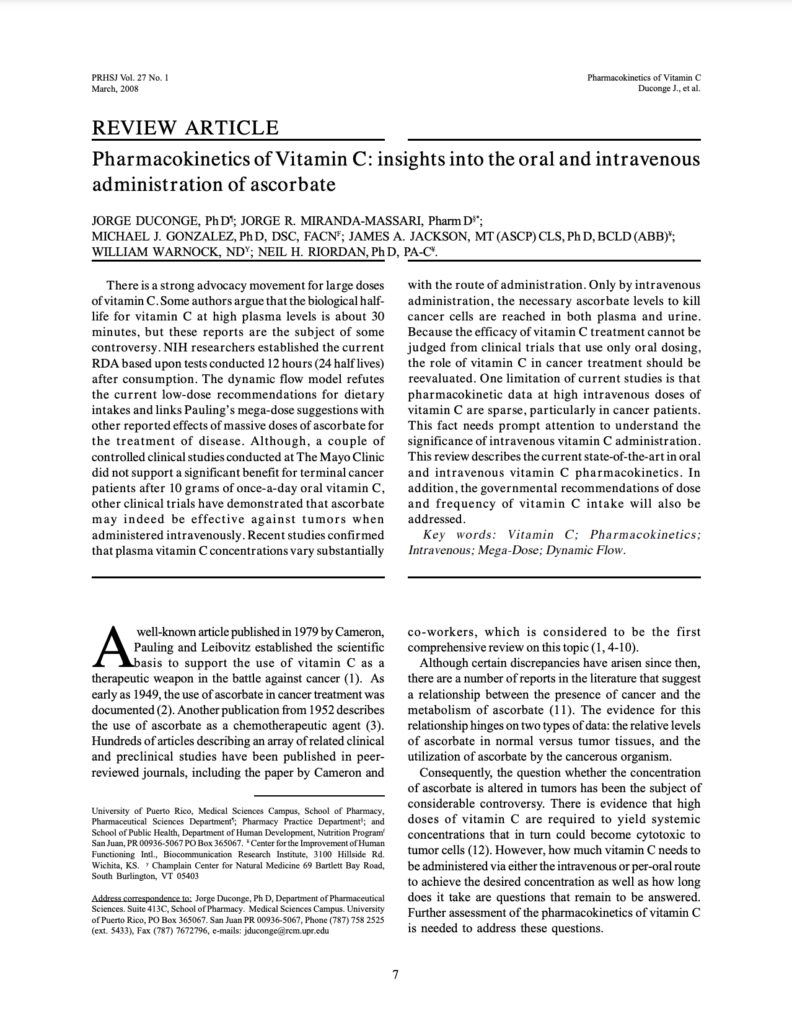
3/1/2008 P R Health Sci J. 2008 Mar;27(1):7-19 Duconge J, Miranda-Massari JR, Gonzalez MJ, Jackson JA, Warnock W, Riordan NH. There is a strong advocacy movement for large doses of vitamin C. Some authors argue that the biological half-life for vitamin C at high plasma levels is about 30 minutes, but these reports are the…
Orthomolecular oncology review: ascorbic acid and cancer 25 years later.
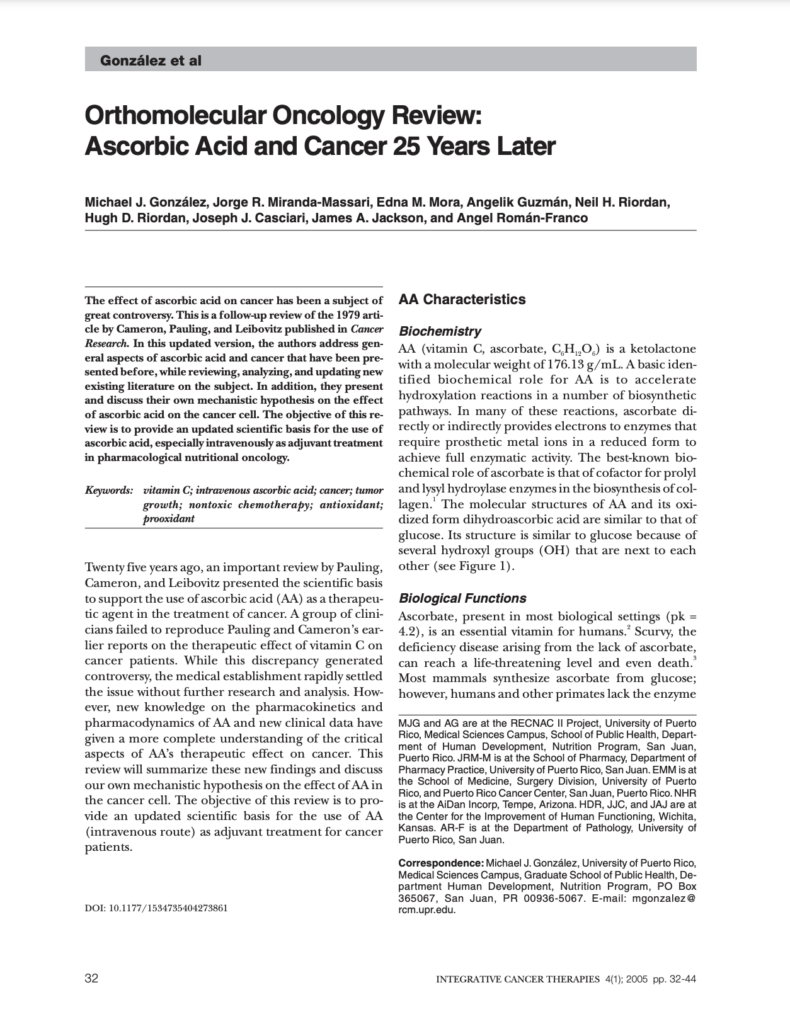
3/1/2005 Integr Cancer Ther. 2005 Mar;4(1):32-44 González MJ, Miranda-Massari JR, Mora EM, Guzmán A, Riordan NH, Riordan HD, Casciari JJ, Jackson JA, Román-Franco A. The effect of ascorbic acid on cancer has been a subject of great controversy. This is a follow-up review of the 1979 article by Cameron, Pauling, and Leibovitz published in Cancer…
Intravenous vitamin C as a chemotherapy agent: a report on clinical cases.
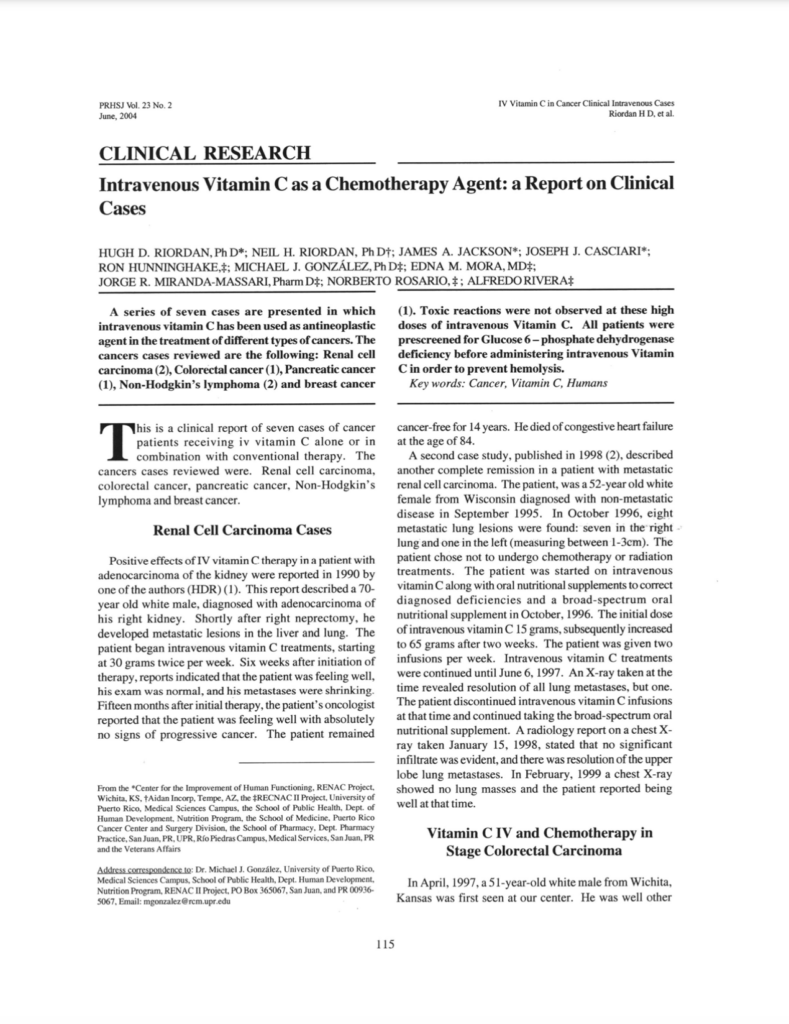
6/1/2004 P R Health Sci J. 2004 Jun;23(2):115-8 Riordan HD, Riordan NH, Jackson JA, Casciari JJ, Hunninghake R, González MJ, Mora EM, Miranda-Massari JR, Rosario N, Rivera A. A series of seven cases are presented in which intravenous vitamin C has been used as antineoplastic agent in the treatment of different types of cancers. The…
Inhibition of human breast carcinoma cell proliferation by ascorbate and copper.
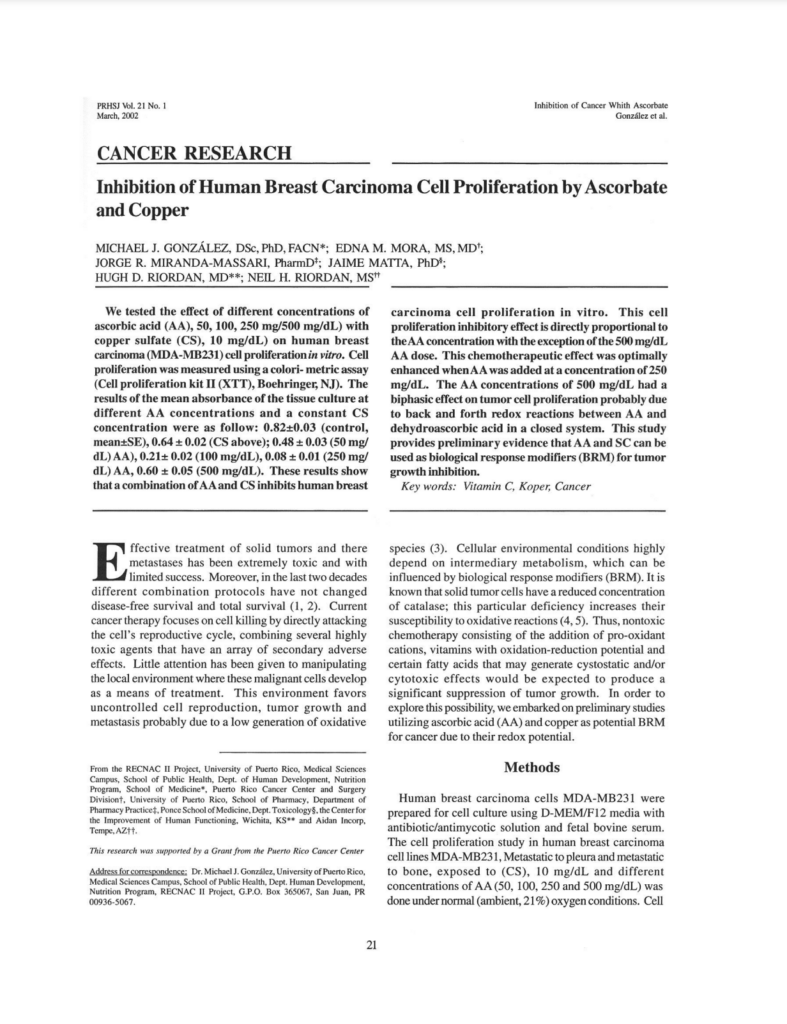
3/1/2002 P R Health Sci J. 2002 Mar;21(1):21-3 González MJ, Mora EM, Miranda-Massari JR, Matta J, Riordan HD, Riordan NH We tested the effect of different concentrations of ascorbic acid (AA), 50, 100, 250 mg/500 mg/dL) with copper sulfate (CS), 10 mg/dL) on human breast carcinoma (MDA-MB231) cell proliferation in vitro. Cell proliferation was measured…
A Proposed Guide for Interpretation of Plasma Ascorbate Concentrations.
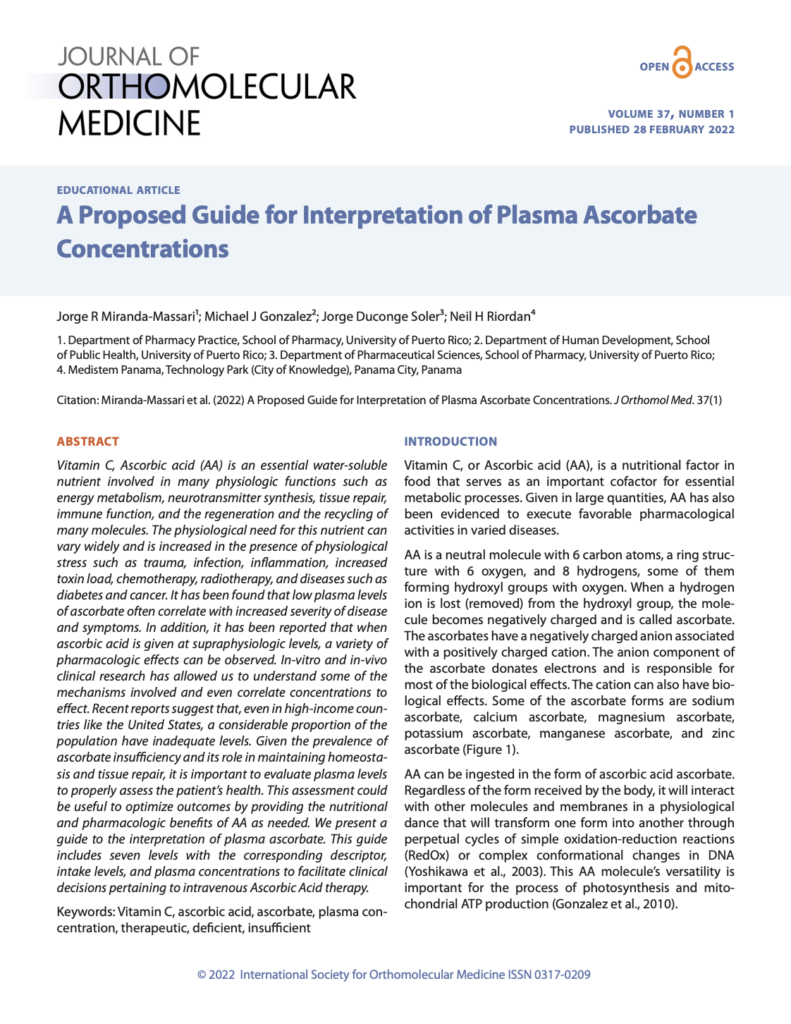
7/14/1905 Journal of Orthomolecular Medicine 37 (1); 2022 JR Miranda-Massari, MJ Gonzalez, JD Soler, NH Riordan. Vitamin C, Ascorbic acid (AA) is an essential water-soluble nutrient involved in many physiologic functions such as energy metabolism, neurotransmitter synthesis, tissue repair, immune function, and the regeneration and the recycling of many molecules. The physiological need for this…
